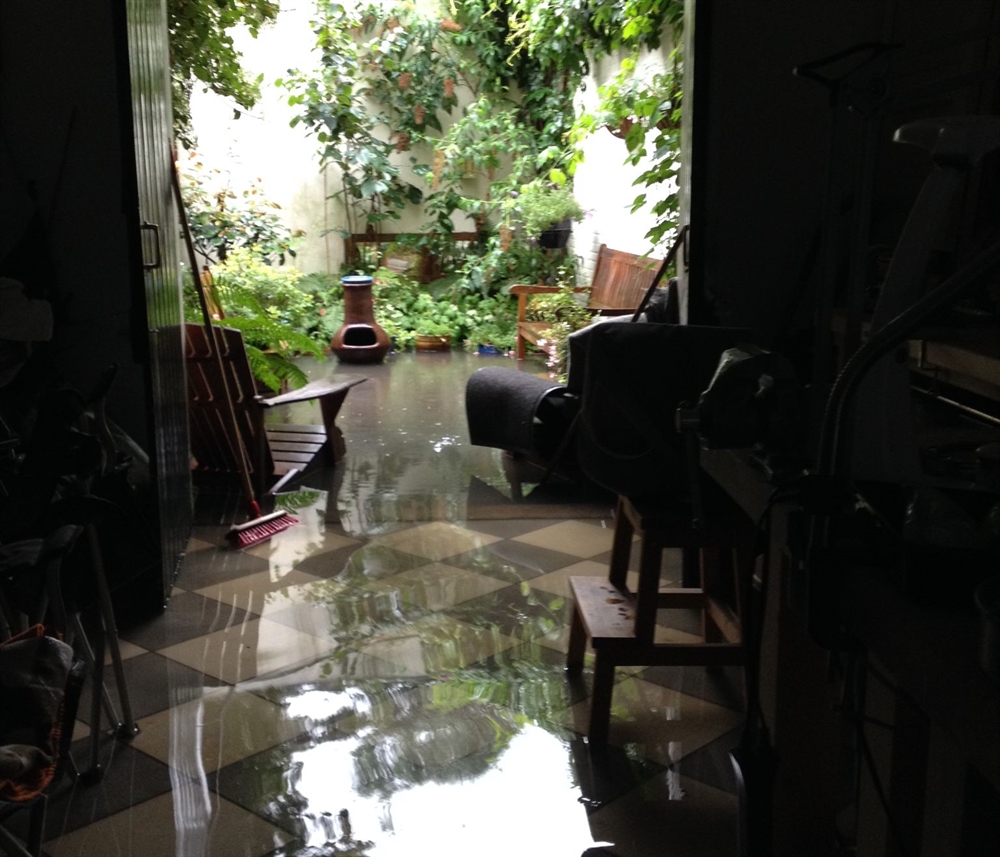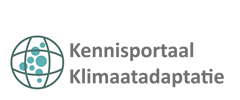Impact project: risk dialogue regarding climate-proofing a subsiding historic city
The city centre of Gouda has been subsiding for more than 750 years. A solution would be to lower the water level. However, for fear of foundation issues underneath premises resting on wooden piles, the level has not been lowered in 50 years. As a result, residents are increasingly faced with moisture problems and flooding during severe downpours. In order to come up with a solution, the municipality and the district water board are working on the Framework Plan for City Centre Soil Subsidence. By conducting risk dialogues, they are involving all the stakeholders in this plan.

Photo: resident of Gouda city centre
Who is participating in the risk dialogues?
The municipality and the district water board have conducted risk dialogues with two separate groups:
- Owner-occupiers;
- Entrepreneurs, real estate agents, housing corporations, and other interest groups in the city centre, e.g., in the fields of culture, heritage, and housing.
What is the purpose of the dialogues?
The dialogues are aimed at finding answers to the following questions:
- The water level must be lowered again, but to what depth? When is waterlogging acceptable?
- What can the historic city take?
- How are we going to cope with the problems affecting wooden piles? Who is going to pay?
- What solution is climate-proof?
What were the dilemmas?
With these questions, Gouda encountered two dilemmas:
- How do you ask participants when they would find waterlogging acceptable?
Chosen solution:
- Set up a dialogue step by step, thus collectively getting a feeling for the waterlogging problem;
- Approach the participants in a manner that gears the topics to their perception and interests.
- How do you reach owner-occupiers in a manner that is conducive to the risk dialogue? How do you avoid conversations remaining too abstract as a result of the theoretical subject matter?
Chosen solution:
- Focus the conversation on improvement here and now(tactical level) and subsequently on the key policy questions (strategic level);
- Focus on a limited area, in order to enable “real” conversations.
How has the dialogue with owner-occupiers been conducted?
The municipality first organised 12 “living room interviews” with owner-occupiers, representing a total of 50 per cent of the addresses. The municipality subsequently assessed the outcomes at other locations in the city. The risk dialogues with owner-occupiers were primarily intended to find an answer to the key policy question: “what is the best long-term solution to combat waterlogging?” However, rather than posing this question, the municipality departed from the residents’ perspective. In a separate project, it explored short-term waterlogging solutions together with the residents of a single street. This generated quite concrete and in-depth conversations. Furthermore, the municipality thus managed to involve the residents in the key policy question and garner feeling for the position of other stakeholders.
What were the results?
The dialogues have produced results in terms of short-term and long-term solutions to waterlogging. For the short term, a concrete strategy has been developed, whose implementation and evaluation with residents is scheduled for the period up to September 2020:
- Launch a “house improvement helpdesk” pilot: a single contact person for residents to ask questions regarding the improvement of their house;
- Inform residents regularly on ways to improve their houses;
- Launch a private premises sewerage improvement project: residents exploring sustainable methods to collectively improve their sewers and rainwater drains;
These were the results for the long-term combating of waterlogging:
- Confirmation: waterlogging occurs everywhere in the problem area;
- Residents regard waterlogging as a “fact of life”: their enjoyment of residence is not seriously compromised;
- Residents consider occasional rain-related waterlogging worse than permanent groundwater waterlogging. They have little concern for the health aspects of moisture in their houses;
- There is support among residents for lowering the water level. However, they do not hold specific views regarding the prospective depth;
- Many residents appear willing to provide financial support to owners who will be experiencing foundation issues once the water level is lowered.
How has the dialogue with interest groups been conducted?
The municipality has organised seven theme-based think tank meetings for interest groups, one of which was at the special request of the participants. These meetings were directly focused on the key policy questions. In order to ensure a solid basis for the dialogues, the knowledge gap between the discussion partners first had to be bridged. This was accomplished by having them peruse the variant study, which involved the exploration of several technical solutions to lower the water level. More than 50 representatives of interest groups viewed the study, along with other interested parties.
What were the results?
The dialogue with interest groups has produced the following results:
- Potential solutions to waterlogging garner particular interest among representatives of heritage, culture, water-related activities, and real estate organisations. Entrepreneurs in the retail and catering sectors show much less interest;
- Foundations are prone to many misunderstandings: the quality of certain types, the options for having buildings rest on piles, how opening canals can help to climate-proof a city;
- Many interest groups underestimate the existing waterlogging;
- Water-related activities in the city garner wide attention;
- Many interest groups want canals that have previously been filled in to reopen;
- Interest groups expect the government to make an effort to resolve problems and to fund a range of improvements.
The risk dialogue with interest groups regarding the key policy questions will subsequently enter the official phase. The Framework Plan for City Centre Soil Subsidence will be available for examination. The Gouda Municipal Council and the Rijnland United Assembly will endorse the plan.
Waterlogging, me?
The dialogue with owner-occupiers commenced with a series of home meetings. This generated insight into the extent and perception of waterlogging. During the meetings, it became clear that people can become blind to waterlogging. One resident indicated that her house was not affected, whereupon the discussion leader pointed to mould two metres above the floor: ‘How about that?’ Resident: ‘Oh yes, rising damp, forgot about that.’
Special features
Lowering the groundwater level is in the interests of all the stakeholders in Gouda. However, this solution will also create problems for some people: the owners of houses resting on wooden pile foundations. The discussion on the distribution of costs revealed that many stakeholders are prepared to resolve this problem together. One resident even advocated the establishment of an owners association for the city centre, in order to divide the costs of foundation issues amongst each other.
Lessons to be learned
- The “indirect” approach of owner-occupiers has worked well. Eventually, it has provided the municipality with a clear picture of the owner-occupiers’ views on the key policy question.
- Interest groups and owner-occupiers live in two entirely different worlds. For that reason, launching a separate procedure for each group was a good idea.
- Focusing on a single street ensures in-depth conversations, but also runs the risk of a lack of representativeness. A round of assessment at other locations in the city turned out to be a good solution.
- A series of meetings in which you can learn to understand one another is immensely useful for entering into in-depth conversations.
- The approach is highly labour-intensive and worthwhile.
- In the first two months, only 2 out of the 130 addresses contacted the house improvement helpdesk. In the dialogue, residents had indicated that they regarded such a helpdesk as a useful solution. However, actually using the helpdesk is a different matter.
Contact person
Luuk Jacobs
Luuk Jacobs Communicatieadvies
luuk@luukjacobs.nl
